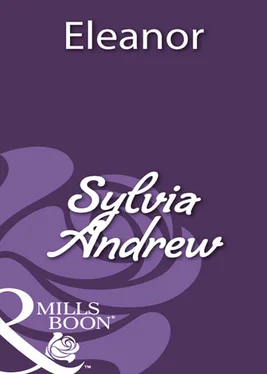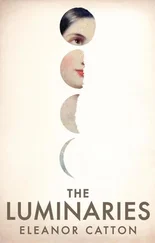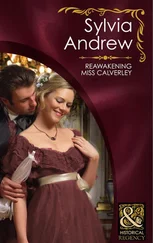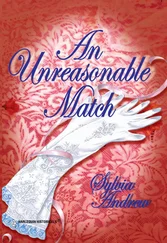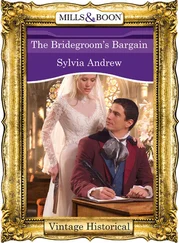‘Captain? Captain who?’
‘My horse, my horse! He must be hurt, too. That wire caught him right across his legs.’
‘Is that him? Over there?’
‘Go and fetch him, there’s a good girl. I’ll have a look at him.’ He started to get up, but stopped on one knee. Eleanor could hear him swearing quietly to himself. She went to help him, but he waved her away impatiently. ‘Don’t twitter over me! Make yourself useful by getting the horse, woman!’
Eleanor refrained from comment, though there was much that she would have liked to say. The man was clearly in great pain. She went slowly over to Captain. He was in a highly nervous state and it took her some minutes to calm him sufficiently to catch hold of his bridle, which was fortunately still in place. She led him slowly over to Mr Guthrie, who by this time had managed to stand.
‘That was very well done,’ he said with reluctant approval. ‘You have a way with horses as well as with men, that’s obvious. Now, Captain, my beauty, what have we here?’
Fortunately the wire had not been well anchored at one end and had given way before doing the horse any serious damage. By the time John returned with help, Mr Guthrie was leading Captain along the path, exhorting Miss Southeran to ride on without him. She had up to this point ignored him, merely continuing to walk alongside, leading her own bay. In any case, how on earth did he expect her to mount a fully grown horse without the benefit of groom or mounting-block? But when she saw John and the others approaching she breathed a sigh of relief and turned to her companion.
‘Goodbye again, Mr Guthrie. I hope you have not suffered any lasting damage.’
‘I am obliged to you, Miss Southeran. I think you might have saved my life, albeit unintentionally.’ Eleanor looked at him doubtfully, but he was serious.
‘If you think so, then I am happy to have been of service.’
‘I’ve missed our rides,’ he said abruptly.
Eleanor coloured, but said nothing. He gave a wry smile and went on, ‘Well, I look forward to our next meeting—in more auspicious circumstances, I hope!’
‘As I think my aunt said in her note, Mr Guthrie, I don’t think another meeting is at all likely. I have now heard Mrs Anstey’s story, you see—the full one. I shall take pains to avoid you in future.’
‘You may try, by all means. Don’t count on success, however,’ he said coolly. ‘I suppose you have no doubts, no uncertainties about my guilt?’
Eleanor felt a sudden flicker of hope.
‘Do you…do you deny the truth of what she said?’
He hesitated for a moment, then he drawled, ‘Since I wasn’t there, how can I possibly know what she said? She may well have been right. In any case, ma’am, why on earth should I deny anything? What business is it of yours, I should like to know?’
Eleanor was so incensed that she almost ran towards John, requesting him to help her to mount. Then she rode off without waiting to hear any more.
Eleanor went on fuming about Mr Guthrie throughout that last day in London—when she wasn’t puzzling over the curious circumstances of the morning’s meeting. In spite of everything, she still found it very difficult to reconcile the black-hearted villain of Mrs Anstey’s tale with the man she had met. Her feelings were so confused that she was heartily glad to be leaving for Somerset the next day. She told herself she would forget everything to do with him once she was back at Stanyards.
On the day of her departure the whole household, including her aunt, rose early to see her off. She was fortunate enough to be able to travel with some friends of Bella’s new husband, who lived near Lyme Regis, and who had hired a post-chaise. When they appeared in South Audley Street, Eleanor thanked her uncle, embraced her aunt warmly and prepared to climb into the carriage. Her aunt held her sleeve.
‘I have done my best to change you into a conformable young lady, Eleanor, but I cannot pride myself on my success.’
‘And I, for one, am glad of it,’ said her uncle, embracing his niece.
‘Well, there have been times when I could have shaken you for your behaviour—but we shall miss you. Life is never dull when you are there,’ said Lady Walcot, smiling at her niece. ‘Remember! When the time comes, you have only to say the word and I shall still spare no effort to find you a suitable husband!’
‘Thank you, darling Aunt Hetty! But I’m afraid the task would be too difficult, even for you! Besides, there’s too much to do at Stanyards! Come down and see us when you grow tired of the season. I shall miss you both! Goodbye!’
The chaise rolled off, and Eleanor waved until they turned the corner and the Walcots were lost to sight.
The journey passed pleasantly enough—the roads were dry and the weather favourable. But by the end of the second day she was heartily glad to stretch her legs at the posting house in Axminster, say goodbye to her kind friends, and join the carriage from Stanyards which would take her the rest of the way. Within an hour she was at the beginning of the long avenue of chestnuts which led to the house. She was home!
As soon as the carriage drew up at the door, Eleanor jumped out, ran up the low flight of steps and clasped her mother in her arms. After a rapturous greeting, Eleanor stood back and surveyed her. ‘I ought to scold you for standing in the evening air,’ she said. ‘Why didn’t you stay inside?’
‘Daniel saw the carriage and told us you were coming. I couldn’t wait to see you, Nell—and anyway I’m feeling very well at the moment, so you needn’t scold me at all! Oh, it’s delightful to have you home again! Cousin Louisa has been very kind, but I’ve missed you a great deal. Come in, come in!’
Eleanor followed her mother across the huge, stone-flagged hall into a room which opened off to the side. Here the low ceilings, ingle-nooks and casement windows set in thick walls proclaimed the great age of the house. But the log fire in the handsome fireplace and the books and tapestries around the walls gave it an air of warmth and comfort.
‘I hope you don’t die of a heatstroke, Nell. Cousin Louisa insisted on the fire.’
‘Your mother hasn’t enough flesh on her bones to keep her warm even on the hottest day of summer! And this room never really gets the chill off it, you know that. I am glad to see you, Eleanor. How was your journey? No, don’t start talking before you have some food in you; I dare swear you have had nothing sensible for the past month. I’ve told Betty to bring a tray and we’ll put it on the table by the window—the dining-room is far too damp unless you have a fire there, too, which would be wickedly extravagant.
‘Anthea, I’ve drawn your sofa nearer the fire. It was foolish of you to stand outside in the night air for so long. Eleanor could well have waited another two minutes to see you; you look quite chilled. I’ll ask Betty to bring you something warm, too—Drat the woman, you may wait till Domesday for what you want. I’ll just see what she is doing.’ Cousin Louisa went bustling out. Her cry of, ‘Betty!’ echoed through the hall as she went.
‘She means well,’ said Mrs Southeran with a wry smile.
‘I know she does. Has it been very hard?’
‘Not at all. But tell me about the journey, and when Cousin Louisa returns you can tell us both about Hetty and Bella and the wedding. Did you like the Wyndhams? It’s a long journey to be cooped up with strangers.’
They spent the rest of the evening exchanging news and gossip. Candles were necessary quite soon, for daylight always faded early in the house, even in summer, and the three ladies sat cosily in the soft light till the tea-tray was brought in. But in all her descriptions of her life in London Eleanor never once mentioned the name of Guthrie.
Читать дальше
